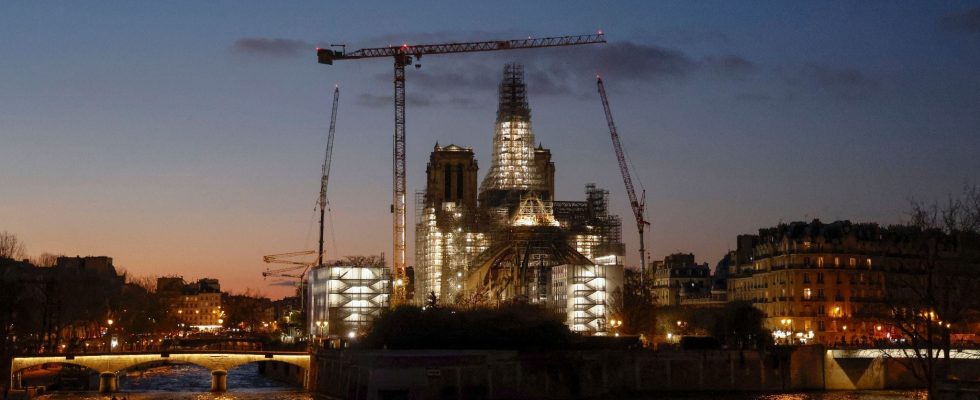Discuss the question of construction sites with a Frenchman (or, better, a Parisian), the answer should include the words “delay”, “extra cost” and “problem”. Read the German press, notably the flattering article by South German Zeitung published in mid-January, and you will discover that France is now a model to follow in this area. The liberal newspaper, which did not hesitate to mock Emmanuel Macron’s wish to see Notre-Dame Cathedral rebuilt in five years (“But yes, just a plan, five years – never in life!”), salutes today the French are “at the rendezvous” [et qui] meet deadlines.” “It is with good grace that we congratulate them.”
Better: while the last peg was placed in mid-January in the framework of the cathedral, reduced to ruins by the fire that occurred in 2019, the title even goes so far as to apologize to the President of the Republic, as well than to the French, for having doubted the success of the plan. “[Un projet] incredibly ambitious, the specialists agree, taking into account the problem of reconstruction and the question of how to restore the cathedral, a monument celebrated by literature, cinema and music, on its island in the heart of historic Paris, while respecting heritage and preparing to better respond to comparable disasters in the future.”
It must be said that across the Rhine, as elsewhere, there are countless projects that have degenerated into scandals. Thus the Willy-Brandt airport in Berlin-Brandenburg, which was scheduled to open in 2011. But, between governance problems, lack of coordination and construction errors, the operation had turned into a fiasco, to the point of be completed nine years later, in 2020. In 2014, L’Express devoted a report to major German public infrastructure projects subject to defects, delays and cost explosions, including the Elb Philharmonic project in Hamburg, which was years behind schedule and faced considerable additional costs. To read the South German Zeitung, this escalation of the worst seems to have worked in France’s favor. “The reconstruction of Notre-Dame will of course cost more than announced, but not in absurd proportions.”
“Terrific willpower”
If the German newspaper is so rave, it is also because this project and the pride expressed by Emmanuel Macron on his account (formerly Twitter) after the installation, on January 12, of the “carpenters’ bouquet” at the top of the building, as tradition dictates, provide “an answer to the question of knowing under what conditions projects can still succeed in our days”. “If everyone wants it […] so it remains possible today to accomplish extraordinary things,” the title says.
“A tremendous will was quickly expressed, the very complex issues of implementation were quickly discussed and, once concluded, the agreements were not called into question unnecessarily. The construction companies dispatched their best people on the construction site, the French supported the project with a lot of donations – and the planners did their work without having to constantly worry about being caught in the crossfire of any political ambushes”, notes the Munich-based daily .
We almost forget that, in France, the saga of the reconstruction of the building has not been a long, quiet river, between outcry against the promises of donations from large fortunes (in the midst of the yellow vest crisis), controversy around the project of new contemporary stained glass windows and prospect of lead pollution. A complaint was also filed in 2022 by the CGT Paris, the Henri-Pézerat association, as well as two families whose children were allegedly exposed to lead after the cathedral fire, and an investigating judge was designated to investigate possible endangering of the lives of others.
.
